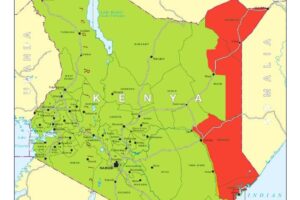
After years of stop-start regulation, Nigeria has made its intention clear that it is ready to bring its crypto sector, which has notoriously operated in a Wild West market, under its watchful eye. Obinna Iwuno, president of the Stakeholders in Blockchain Technology Association of Nigeria (SIBAN), an advocacy group, echoed this sentiment during a fireside chat with Chinedu Obidiegwu, Head of Business at Luno Nigeria, a crypto company, at Moonshot by TechCabal on Thursday, October 16.
“Crypto regulation is gaining clarity, but we are not where we want to be yet,” said Iwuno. “The ISA [Investment and Securities Act, 2025, which was signed in March] is not the most perfect regulation out there, but we can improve it. That’s why we say if you’re an operator coming into the market, you’re still early.”
Since 2024, Nigeria’s Securities and Exchange Commission (SEC) has worked to position itself as a forward-looking regulator. In June, it launched the Accelerated Regulatory Incubation Programme (ARIP) and the Regulatory Incubation (RI) programme to test emerging crypto businesses under controlled conditions.
Through these sandboxes, the regulator granted provisional licences to seven operators from both programmes, and began monitoring experiments in stablecoins, tokenisation, and real-world assets. The transition to full licences has slowed, with the SEC citing extended due diligence to ensure only compliant players advance.
Iwuno said SIBAN is working on ensuring alignment between crypto operators, policymakers, and multiple regulators involved in different aspects of overseeing how crypto transaction flows, including the Nigerian Communications Commission (NCC), the telecoms regulator; the Economic and Financial Crimes Commission (EFCC), the anti-graft agency; the Nigerian Financial Intelligence Unit (NFIU), the body responsible for financial intelligence reporting; the National Information Technology Development Agency (NITDA), the ICT sector regulator; and the Ministry of Communications.
A big part of SIBAN’s efforts is educating the stakeholders involved, ensuring there’s a more holistic approach to regulating crypto, said Iwuno.
“[Nigeria] has implemented a national blockchain policy that centres around capacity development and responsible adoption of crypto,” said Iwuno. “We have the ISA, too, but the existing [regulations] are not sufficient to capture the different nuances of crypto. We want to see the responsible integration of crypto in the private and public sectors.”
Despite the lack of full regulatory clarity surrounding crypto, the adoption of digital assets in Nigeria has surged, led by a young population that wants speed and convenience when sending and receiving money.
Crypto has the most practical utility in Africa. Fast, high-value cross-border transactions are only possible with crypto. Yet the sector still plays outside institutional finance because regulators are still wary of the lack of centralised oversight. The SIBAN has led efforts to implement compliance standards for operators, in a bid to give crypto a self-regulated front, according to Iwuno.
“As SIBAN, we ensured every operator operated a minimum of two identity verification checks to ramp up security,” said Iwuno. “And that is bringing the trust we need in the market.”
Blockchain technology is one of the few sectors where anyone can find a place, regardless of background or skill set, said Iwuno. Its inclusiveness and endless room for innovation make the industry truly exciting. He believes the future belongs to those who build, create, and provide real value within it.





